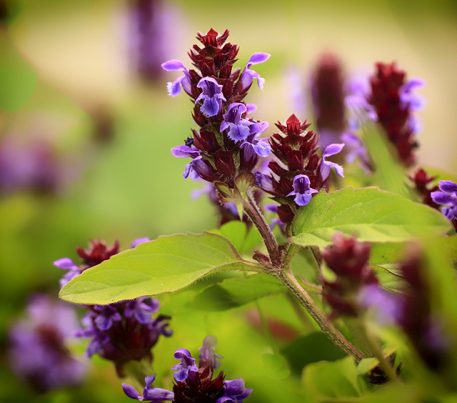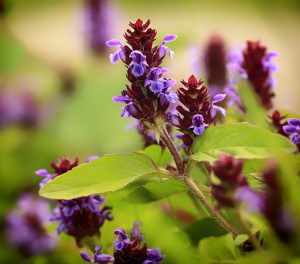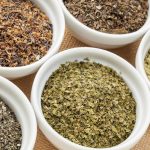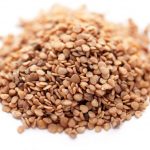
Prunella – sources, health benefits, nutrients, uses and constituents at NaturalPedia.com
Friday, July 21, 2017 by Frances Bloomfield
http://www.naturalnewsherbs.com/2017-07-21-prunella-sources-health-benefits-nutrients-uses-and-constituents-at-naturalpedia-com.html

Prunella (Prunella vulgaris) is an herbaceous, flowering plant belonging to the family Lamiaceae. This native plant of Europe, North America, and Asia goes by many other names like American selfheal, Lanceleaf selfheal, and All Heal. These alternative names all refer to the medicinal capabilities that prunella has since become famous for, which range from treating mouth inflammations to curing boils.

List of known nutrients
Prunella is awash in antioxidants that give it a vast array of health-promoting qualities. These include but aren’t limited to antibiotic, anti-viral, anti-inflammatory, astringent, diuretic, immunomodulator, and hypotensive properties.
Moreover, prunella contains moderate amounts of vitamins C, K, and B1 or thiamine.
Medicinal uses for prunella
Prunella has been and continues to be used to relieve the symptoms of:
- Cancer
- Cold sores
- Colic
- Conjunctivitis
- Crohn’s disease
- Diabetes
- Eczema
- Edema
- Gallbladder disorders
- Gastroenteritis
- Goiter
- Gout
- Headache
- Herpes
- Hypertension
- Psoriasis
- Seasonal allergies
- Sore throat
- Sties
- Tumors
- Ulcerative colitis
- Vertigo
The antiseptic and antibiotic properties of prunella are such that even a mild infusion is enough to treat sties and conjunctivitis, or the swelling of the thin transparent layer of tissue that covers the white part of the eye.
Regularly taking a tea made of prunella can reduce the more extreme responses of the immune system to allergens, and as a result, lower the chances of developing seasonal allergies and chronic inflammations.
Individuals who suffer from psoriasis or eczema can turn to prunella ointments for relief from the discomfort associated with their conditions.
Body systems supported by prunella
Consuming or using prunella can support and nourish:
- Eyes
- Gallbladder
- Heart
- Immune system
- Kidneys
- Liver
- Mouth and Throat
- Respiratory system, including lungs
Thanks to the combination of antioxidants and vitamin C, prunella can strengthen and stimulate the immune system. As a result, the body becomes less susceptible to infections and inflammation.
As a diuretic, prunella can encourage proper kidney function. By increasing the amount of water and salt expelled in the urine, prunella can ease the load off this vital organ.
The less salt there is in the body, the less pressure there is on the blood vessels. With relaxed blood vessels comes a healthier heart.
Ways to use prunella
Depending on how prunella will be used, it can be prepared in a number of ways.
The flowers, leaves, and shoots can be cut up and added to soups, salads, and stews. Prunella can serve as a spinach substitute as well, but the bitter taste and slightly pungent aroma may be off-putting to some. Prunella also does well as a tea.
Dried and crushed prunella can be turned into an infusion by adding two teaspoonfuls to a cup of boiling water. Straining prunella infusion through a fine filter can make for an eye or mouthwash.
To create a poultice, simply crush fresh prunella leaves and then apply directly to wounds, scrapes, or irritated skin.
Note that prunella is generally safe, but certain side effects can arise from taking prunella. These can range from weakness to dizziness to constipation.
Where to learn more
- Chinese Medicine: The Powerful Heat Clearing Anti-Viral Herbs
- Foods and supplements that heal the thyroid
- Heart rejuvenation – two simple practices
- Science identifies powerful rejuvenating substance – Nitric Oxide
- The Most Promising Natural Treatments for Herpes That May Hold The Key to a Herpes Cure
Summary
Prunella is a plant that has been used to treat a variety of health conditions because of its wide array of beneficial qualities. People with such conditions as conjunctivitis, seasonal allergies, eczema, psoriasis, and sore throat can use prunella for some much-needed relief. Moreover, prunella can aid the heart and kidneys thanks to its diuretic effects.
Preparing this herb all comes down to intended use. An infusion is meant to be consumed, mouth wash gargled, eye wash applied to the eyes, and poultice administered onto wounds or inflamed skin.
Sources include:
HealthBenefitsTimes.com
AnniesRemedy.com
Herbal-Supplement-Resource.com
VeryWell.com
TCMWorld.org
Tagged Under: Tags: prunella





